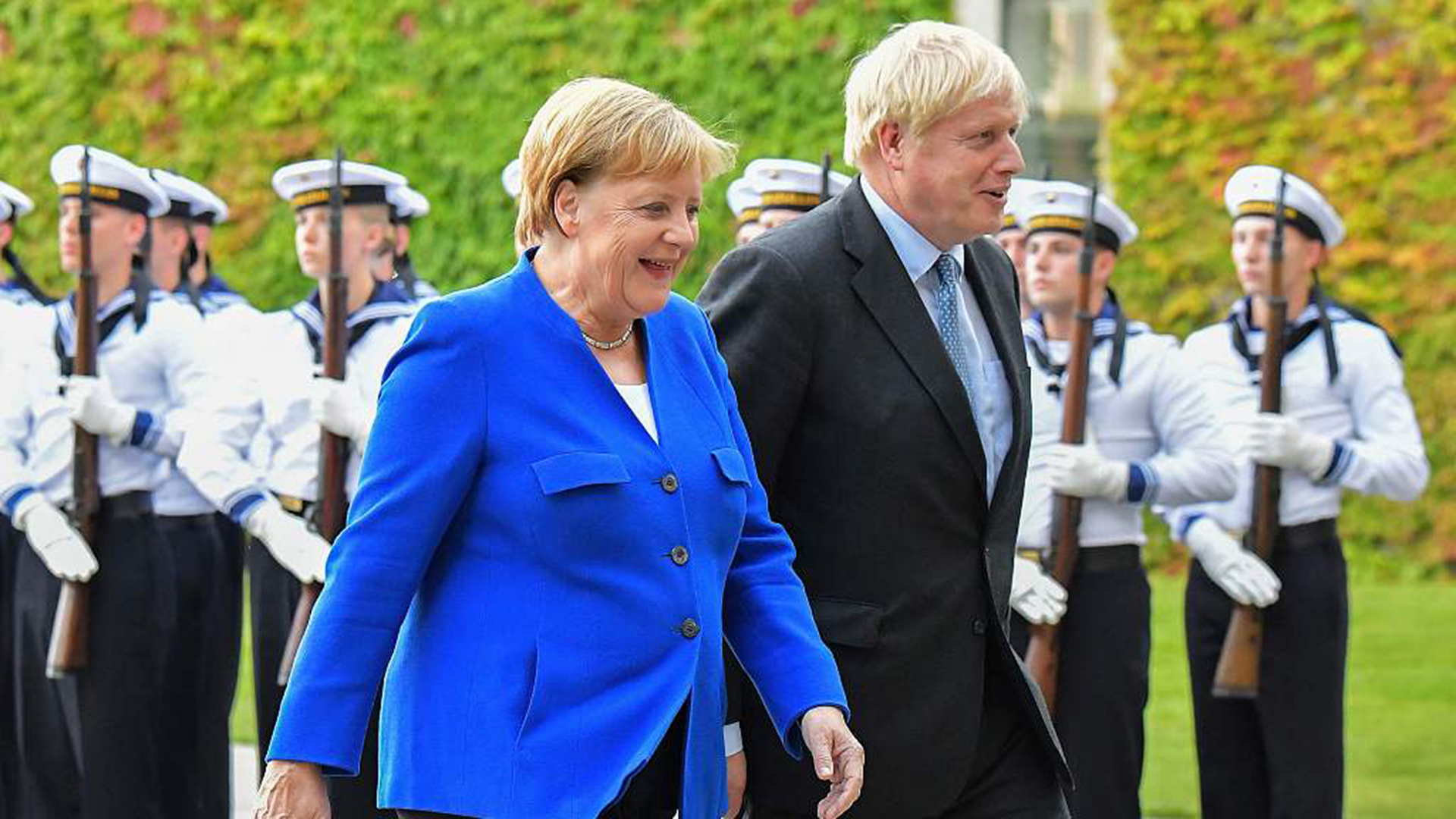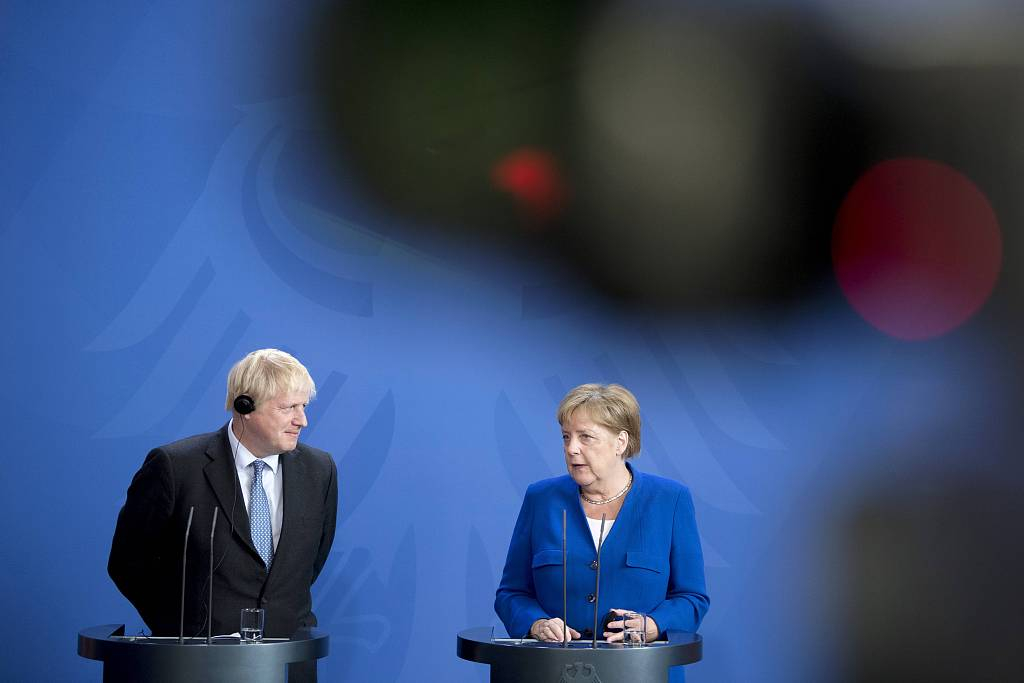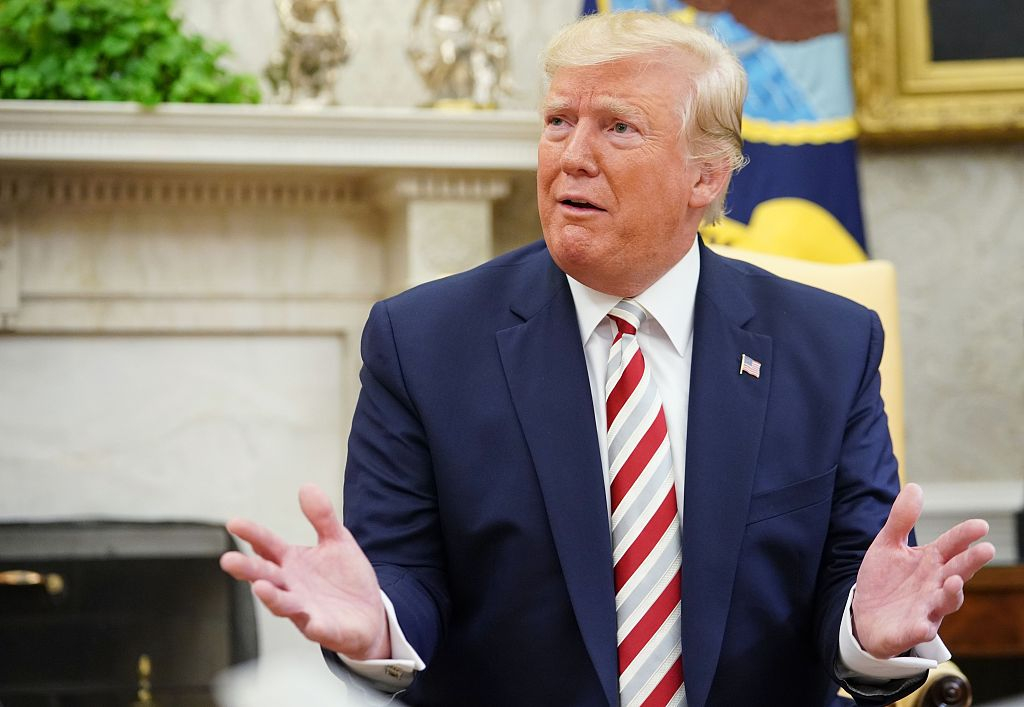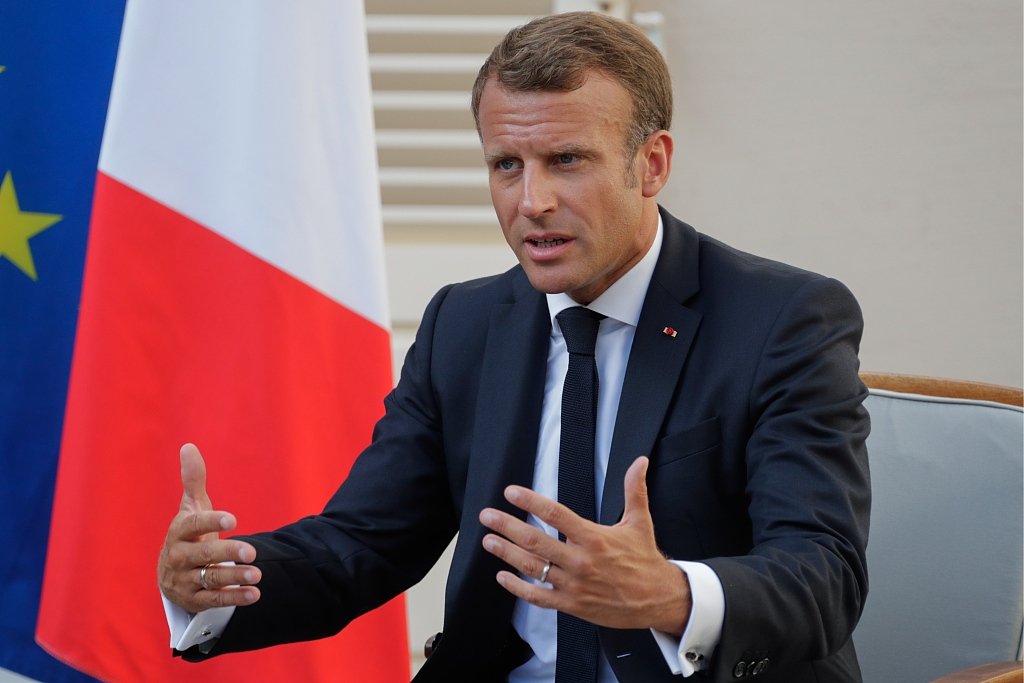

German Chancellor Angela Merkel on Wednesday challenged Britain to come up with alternatives to the Irish border backstop within 30 days, but French President Emmanuel Macron cautioned there would be no renegotiation of the Brexit deal.
In his first trip abroad since assuming office, British Prime Minister Boris Johnson called again for renegotiations for the Brexit agreement between Britain and the European Union (EU) in order to avoid Britain leaving the bloc without a deal on October 31.
The EU, Merkel and Macron have repeatedly rejected to renegotiate the Brexit deal with London. The Brexit deal made under Johnson's predecessor Theresa May was rejected three times by the British Parliament.

British Prime Minister Boris Johnson (L) and German Chancellor Angela Merkel attend a joint press conference at the Chancellery in Berlin, Germany, August 21, 2019. /VCG Photo
The most disputed issue is how to prevent new border controls between the EU member Ireland and British Northern Ireland.
Read more:
Can Ursula von der Leyen break Brexit deadlock?
No-deal Brexit: Do-or-die?
Speaking beside Merkel at the German Chancellery, Johnson repeatedly said that the Irish border backstop – which is a protocol of the Withdrawal Agreement struck by his predecessor Theresa May – needed to be removed in full.
"It was said we will probably find a solution in two years. But we could also find one in the next 30 days, why not?" Merkel said.
Johnson confirmed that she had given him 30 days to come up with alternatives and said there was ample scope for a deal. The two leaders had a constructive dinner of tuna, venison and chocolate tart, a British source said.
Trump and Macron

U.S. President Donald Trump speaks during a meeting with Romania's President Klaus Iohannis in the Oval Office of the White House in Washington, DC, August 20, 2019. /VCG Photo
In Washington, U.S. President Donald Trump, who has been enthusiastic about Brexit but critical of May's negotiating strategy, offered Britain help while criticizing the EU.
"They have not treated the UK very well," he said. "That's a very tough bargain they are driving, the European Union. We are going to see if we can work something out."
But Macron said a no-deal Brexit would be of Britain's own making, adding that any trade deal London cut with Washington would not mitigate the cost of crashing out of the bloc.
"Can (the cost of a hard Brexit) be offset by the United States of America? No. And even if it were a strategic choice, it would be at the cost of an historic vassalisation of Britain," Macron said.

France's President Emmanuel Macron gestures during a meeting with Russian president at the Fort de Bregancon, a summer residence of the president of France, on the French Riviera, August 19, 2019. /VCG Photo
Wrenching Britain out of the EU without a deal means there would be no arrangements to cover everything from post-Brexit pet passports to the trade arteries that pump capital, food and car parts between the two neighbors.
Read more:
Tusk: Brexit a 'vaccine' against Euroskepticism
Can Boris Johnson deliver what he's promised?
Many investors say a no-deal Brexit would send shock waves through the world economy, hurt the economies of Britain and the EU, roil financial markets and weaken London's position as the pre-eminent international financial center.
(With input from Reuters, Xinhua)

Copyright © 2018 CGTN. Beijing ICP prepared NO.16065310-3
Copyright © 2018 CGTN. Beijing ICP prepared NO.16065310-3